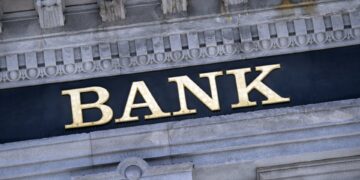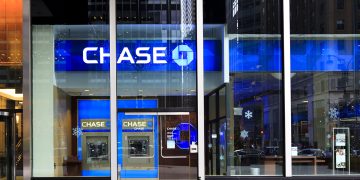* Some banks expected to miss capital deadline-sources
* Asset sales will help Bank Audi, Blom Bank to meet target
* Scrutiny of c.bank governor adds to uncertainty
By Tom Arnold and Ellen Francis
BEIRUT Feb 15 (Reuters) – Paralysed by financial crisis andriven with political risk, a number of Lebanon’s banks arestruggling to meet a central bank target to raise their capitaldefences by 20% by the end of this month.
Less than half of the country’s dozen or so large banks areexpected to meet the requirement, which the central bank set inAugust to reinforce the sector, according to four bankingsources with direct knowledge of the situation. Those that areon track to meet central bank targets have largely tappedexisting shareholders or depositors, converting local dollardeposits into equity instruments or sold overseas businesses.
The situation underscores the scale of the problem facingLebanon’s banks, heavily exposed to one of the world’s mostindebted states and starved of funding. Their customers havelargely been frozen out of their dollar deposits and blockedfrom transferring cash abroad since late 2019.
Given the wall of losses facing the sector, some investorsand economists say it’s too little too late anyway.
The 20% target laid down by Riad Salameh, Lebanon’s veterancentral bank governor, is equivalent to around $4 billion, heconfirmed to Reuters. That is far short of the $83 billion holein banks’ balance sheets estimated by the outgoing governmentlast year as part of a financial rescue plan it had drawn up.
“They are all insolvent,” said Mike Azar, a debt financeadvisor and a former lecturer in international economics at JohnHopkins School of Advanced International Studies.
“There’s no prospect for recovery as things stand, untilthere is a sector-wide bank resolution and restructuring andfinally a fresh capital raise.”
A central bank order for banks to request their largestdepositors to repatriate up to 30% of their deposits alsoappears to have yielded little, the four banking sources say.
Salim Sfeir, the head of Lebanon’s association of banks andthe chief executive of Bank of Beirut, said most banks would”abide by the central bank guidelines”.
“If we believe that there is no prospect for recovery wewould be out of business by now. The challenges are difficultbut we have a history of resilience and creativity and we willadapt to the new situation,” Sfeir said in an statement toReuters.
The central bank said it was premature to assess banks’response to the capital hike target and to a separate requestfrom it that they boost their liquidity by 3% with theircorresponding banks.
“Nevertheless, almost all banks have applied for theincrease in capital and serious work has been done for theincrease in liquidity,” Salameh said in an emailed response toquestions.
He acknowledged the banks could require more capital. “TheCentral Bank will work with the banks to tackle this issueindividually,” Salameh said in emailed comments.
With the end of February deadline approaching, speculationhas bubbled on social media over which banks might beliquidated. The central bank issued a statement last week sayingsuch discussions were “devoid of any truth”.
The governor has warned that those who cannot meet thetarget would have to exit the market but some bankers toldReuters they expect it will be extended because there is solittle hope of attracting fresh investment.
FRESH SCRUTINY
The financial rescue plan devised by the outgoing governmentenvisaged wiping out bank shareholders but opposition frombankers and politicians torpedoed it, contributing to thecollapse of financing talks with the International MonetaryFund.
“A 20% increase in their capital is useful butinsufficient,” said Khaled Abdel Majeed, MENA fund manager atLondon-based SAM Capital Partners, an investment advisory firm.
“I would not touch Lebanese bank stocks at any price. Thingswill get much worse in Lebanon, before they get better.”
Salameh, whose use of what he has described as “financialengineering” to keep Lebanon’s public finances afloat hasattracted criticism, is also facing fresh scrutiny, raisingquestions about his future, bankers say.
Switzerland’s attorney general said last month it wasprobing possible embezzlement tied to the Lebanese central bank.Salameh has denied any wrongdoing and did not respond to arequest for comment about how the inquiry might impact hisposition and the wider banking sector.
Bank Audi and Blom Bank, the country’s largest banks byassets, have sold foreign businesses to help bolster theirfinances.
“The proceeds from the sale of the foreign operations wouldallow us to meet said regulatory requirements while positioningBank Audi amongst viable Lebanese banks with adequate capitaland liquidity levels,” Bank Audi management said in a statementto Reuters.
Blom Bank did not immediately respond to a Reuters requestfor comment on its progress in raising its capital buffers andliquidity levels. It said last month the sale of its Egypt unitwould allow it to comply with the central bank target.
NO CONSENSUS
For years, Lebanon’s banks were among the world’s moreprofitable lenders, funnelling funds from a scattered diasporato the government’s coffers in return for high interest rates.
But exposure to the state has ultimately been the banks’undoing since dollar remittances dried up and anticorruptionprotests erupted, starving the financial system of funding.
Commercial banks have lost roughly 49 trillion Lebanesepounds in deposits in the past two years, equivalent to around22% of current total assets and large depositors are likely tobe in the firing line in any resolution of the banking crisis.
The government’s default on a $1.2 billion eurobond in Marchleft banks, with government paper accounting for most of theirassets, as the biggest casualty.
Much of the remainder of banks’ assets are in real estate,where valuations have slumped amid the economic downturn.
If those assets were to be marked to market, then combinedwith write-offs linked to government exposure, losses wouldoverwhelm the sector’s capital base, said economist Nafez Zouk.
Graphic: https://tmsnrt.rs/3rwxRBG
The central bank told banks in August to provision for a1.89% loss on their hard currency deposits with the central bankand a 45% loss on government Eurobond holdings, levels someeconomists have said underestimate the scale of the problem.
The Lebanese pound has fallen 80% since late 2019 andMoody’s rating agency has estimated that Eurobond losses aregreater than 65%.
Privately, many bankers in Lebanon agree that the currentbanking sector, with at least 40 lenders and assets that swelledto as much as 167% of the country’s economic output at theirrecent peak of 2015, needs to drastically shrink. Someacknowledge that that will require shareholders, bondholders andcustomers to swallow losses.
But there is no consensus on how many banks will need to bewound down and how big the losses should be. Without a newgovernment — the current cabinet serves in a caretaker rolesince resigning in August amid public fury over a devastatingport blast in Beirut — the bankers acknowledge a resolutionappears unlikely anytime soon.
Graphic: https://tmsnrt.rs/3tBqv1X
(Editing by Carmel Crimmins)








